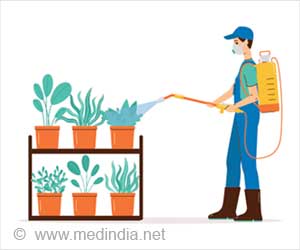
Currently 60 percent of people in the country still defecate in the open.
"Over 65 percent women, the worst sufferers of open defecation, continue with the age-old practice. Only ten percent of the 240,000 gram panchayats are Nirmal Gram Panchayats, that is those with toilet facilities," Ramesh said.
"To achieve the goal to eradicate the practice of open defecation in India a comprehensive program -- Nirmal Bharat Abhiyan (NBA) - was launched in 1999 to ensure full sanitation facilities in rural areas."
"The practice of open defecation is one of India's biggest shame and curse. If we remove it totally, we would achieve one of Gandhiji's aims of clean villages... we would reach out to god's fresh world," Ramesh observed.
To implement the NBA, Rs.3,500 crore would be spent during the current fiscal (2012-13) and Rs.35,000 crore has been allocated for the 12th Five Year Plan period (2012-13 to 2016-2017).
Advertisement
Praising the northeast region, Ramesh said: "Literacy rate in the region is high, empowerment of women is outstanding and community participation is exceptional. Hence, the region can show the rest of the country about the finest sanitation and hygiene."
Advertisement
He announced the central government would soon set up a high-level technical and expertise group, as well as an international centre in Kolkata to deal with the acute problem of arsenic in water.
According to the minister, West Bengal is worst affected by arsenic water followed by Bihar, Uttar Pradesh, Jharkhand and Assam.
Of the northeastern states, Tripura, Meghalaya, Nagaland and Manipur are affected by huge iron content in water.
"Over Rs.500 crore has been recently allocated to provide quality drinking water in the arsenic and iron (in water) affected states," he added.
The central government plans to prepare hydro-geological maps for the entire country to identify new sources of fresh and hygienic water and to draw up a comprehensive scheme of rainwater harvesting.
Source-IANS








